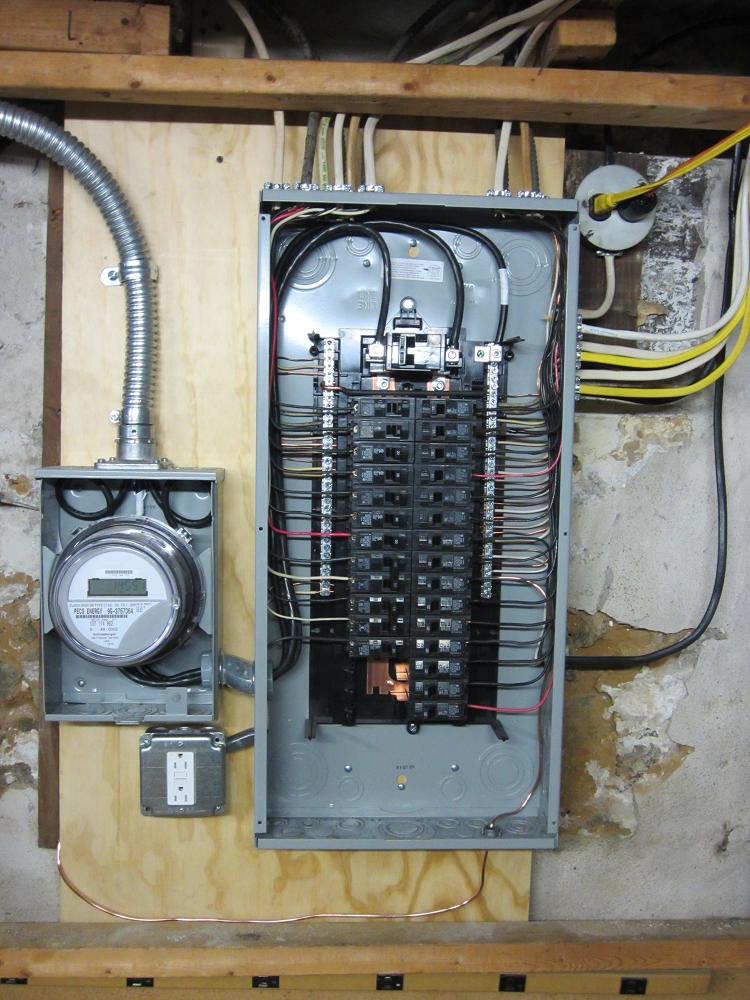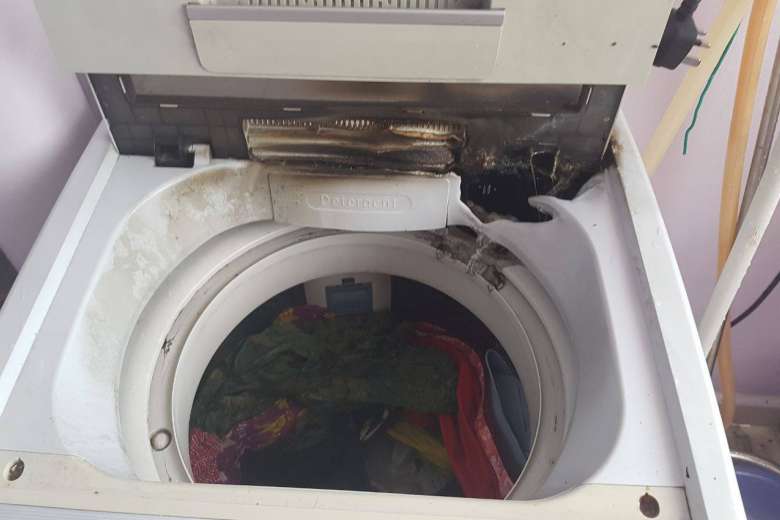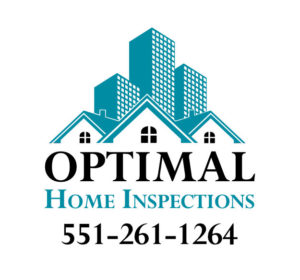The topic of grounding and bonding is a never ending area of confusion. The difference between a service panel and a sub panel is also muddy in many minds. Here are the basics on panels and grounding.
The Electrical Path

- The panel that’s located directly after the electric meter is the main service panel.
- Three wires come from the electric meter and go into the main panel: two live (hot) wires and one neutral.
Main Panels and Sub Panels
There are several different ways main panels are configured in homes, here it is in a nutshell.
- The main panel has a circuit breaker that controls all the power to your home, this is the Double Pole Service Disconnect, this is also called the “main.”
- The electricity from the main can be wired in one of two different ways:
- It stays within the main panel and goes to the circuit breakers that lead to each branch circuit;
- It does to a sub panel which contains circuit breakers that lead to each branch circuit.
- These two different methods are used for convenience and safety.
Neutral Bonding in Panels
The bonding in panels are done two different ways:
- Main Panel – the neutral wire is bonded (connected) to the ground wire.
- Sub Panel – the neutral wire is NOT bonded (connected) to the ground wire.
What’s the difference between bonding and grounding?
These terms are similar, confusing and often used interchangeably. Strictly speaking, a ground wire connects to the ground. Bonding means connecting things electrically together.
- Ground – a wire that goes to a metal pipe or rod that is embedded several feet into the ground.
- Bonding – connecting wires together to make one continues connection.
Bonding and Grounding is about Safety
We all are amazed at what electricity can do for us: from powering our air conditioners to keeping us cool in the summer. We should also know that if it is mishandled or its systems are installed incorrectly, becomes obsolete, or wears out, electricity can be very dangerous, in fact it can kill us!

Example A wire is rubbing against the metal case of washing machine, after a few years of rubbing the insulation wears away and then touches the metal case energizing it.
If there was no grounding the washing machine would stay energized and the washer may catch fire or the next unlucky person to do the wash will be shocked .
If the washing machine was grounded, the current would flow to the ground, drawing a very high amount of power (a short circuit), which in turn trips the circuit breaker. Voilà, no power to the washing machine and you are safe.
Bonding insures that if there is any stray electricity it will be directed to the ground. If there is a break in the system then any disconnected areas will have the potential of being a shock hazard.
Home Inspection
Home Inspection is all about safety. That’s why when I inspect your electrical system I’ll be looking for anything unusual and bring it to your attention. Inspectors are generalist, not specialists, so if anything looks out of the ordinary I’ll recommend a specialist take a look – a licenced electrician.


